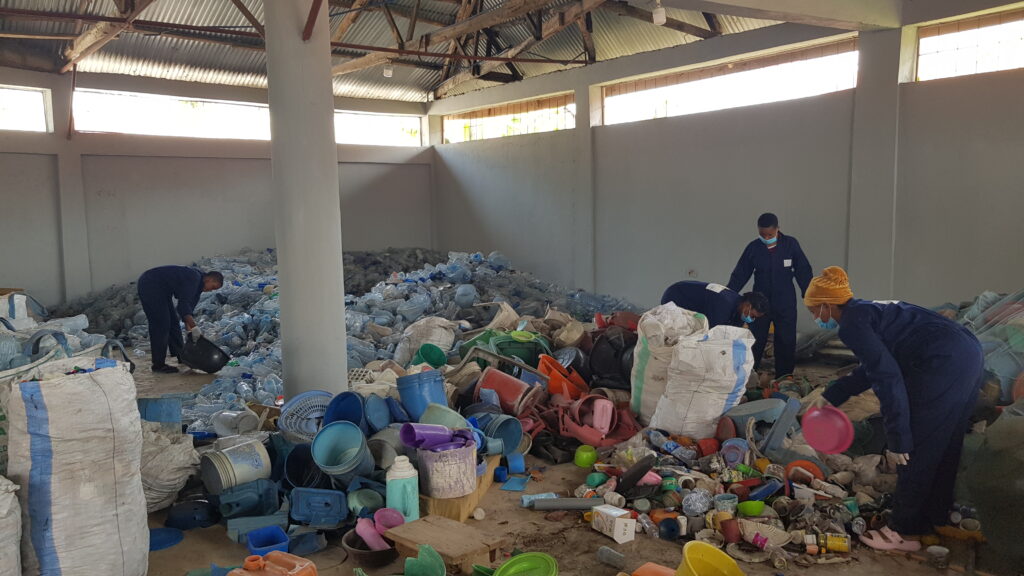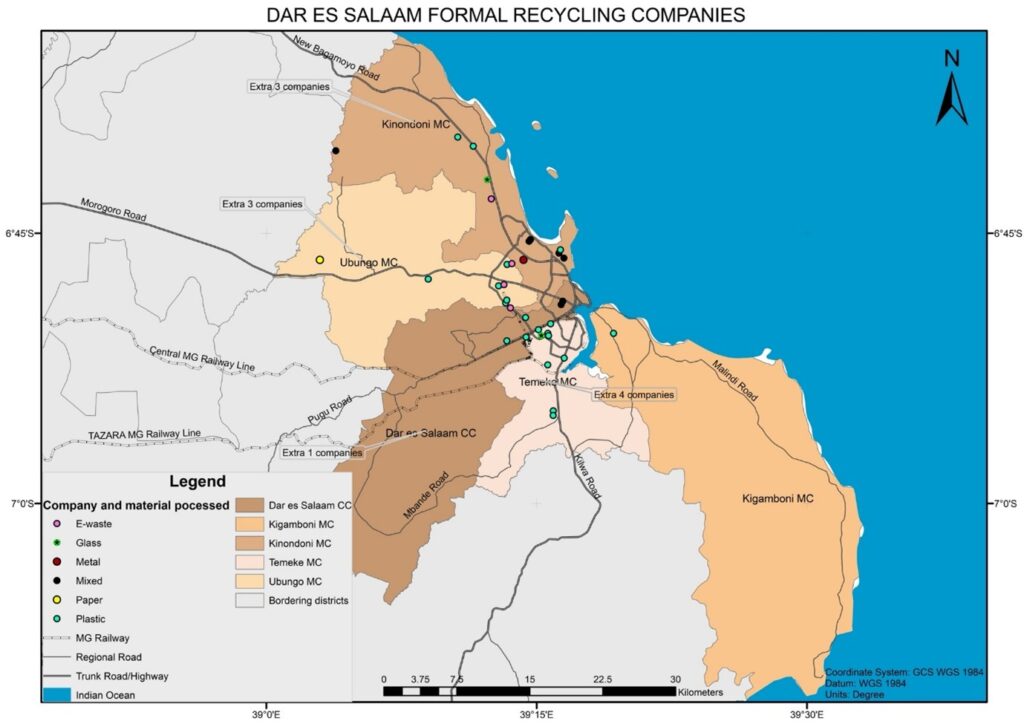By Veronica Di Bella
Little is known about the recycling sector in Dar es Salaam, Tanzania’s and East Africa’s largest city. Despite recent policy improvements to encourage recycling, it is estimated that just 5–15 per cent of all waste produced in the city is recycled, and this is mostly restricted to paper, cardboard and plastic. As the city grows and develops, not only is the volume of waste it produces increasing, but its composition is changing. A recent study found that Dar es Salaam’s annual plastic waste output, at 30 kilograms per person, is almost five times the average for Tanzania.

The Dar es Salaam Urban Resilience Project (DURP), one of the flagship initiatives of the Green Cities and Infrastructure Programme, has been working to understand and improve the city’s recycling sector. We know that the people and organisations involved are very varied, ranging from informal waste pickers to community-based organisations and non-governmental organisations to large recycling and manufacturing companies able to attract international investments. However, we needed a clearer picture of where recyclers operated in Dar es Salaam.
This is why the team at DURP has assessed and mapped formal recycling activities across the city. Our study, which focused on plastic, paper, glass, metal and e-waste, is the first time such a comprehensive assessment of Dar es Salaam’s recycling sector has been conducted and the first time the locations of these recycling activities in the city have been mapped.
In total, we identified 47 recyclers and processors handling plastic, paper, cardboard, glass, metal and e-waste in Dar es Salaam. Of these, the majority (68 per cent) treated plastic – mostly PET, which is commonly used to make bottles. We also found that most recycling and processing companies (84 per cent) were relatively small, with fewer than 100 staff handling less than 1 tonne of waste each year. In addition, certain segments of the sector were very volatile, with recycling companies regularly moving location, changing operations or stopping activities. In terms of recycling processes, the companies’ activities included material recovery, sorting and simple processing (baling and crushing), turning waste into craft items and full-scale recycling resulting in a final product. Some companies also focused on product manufacturing that incorporated recycled content.

All recyclers we interviewed recognised the impact that climate change – especially increased flood frequency – is having on their operations. These impacts range from disrupting recycling operations to affecting their supply chains, for example by reducing the quality of materials or the reliability of supply.
Although our assessment focused on formally registered recycling practices, we know that the informal sector makes a big contribution to recycling in Dar es Salaam. As part of DURP, our aim now is to bring both formal and informal recyclers together in a joint workshop in a few weeks. This workshop will co-develop and prioritise solutions to strengthen the resilience, safety and sustainability of the recycling sector in Dar es Salaam.
Veronica Di Bella is a waste management expert and a Technical Lead for the Green Cities and Infrastructure Programme.
Published
17/02/25
